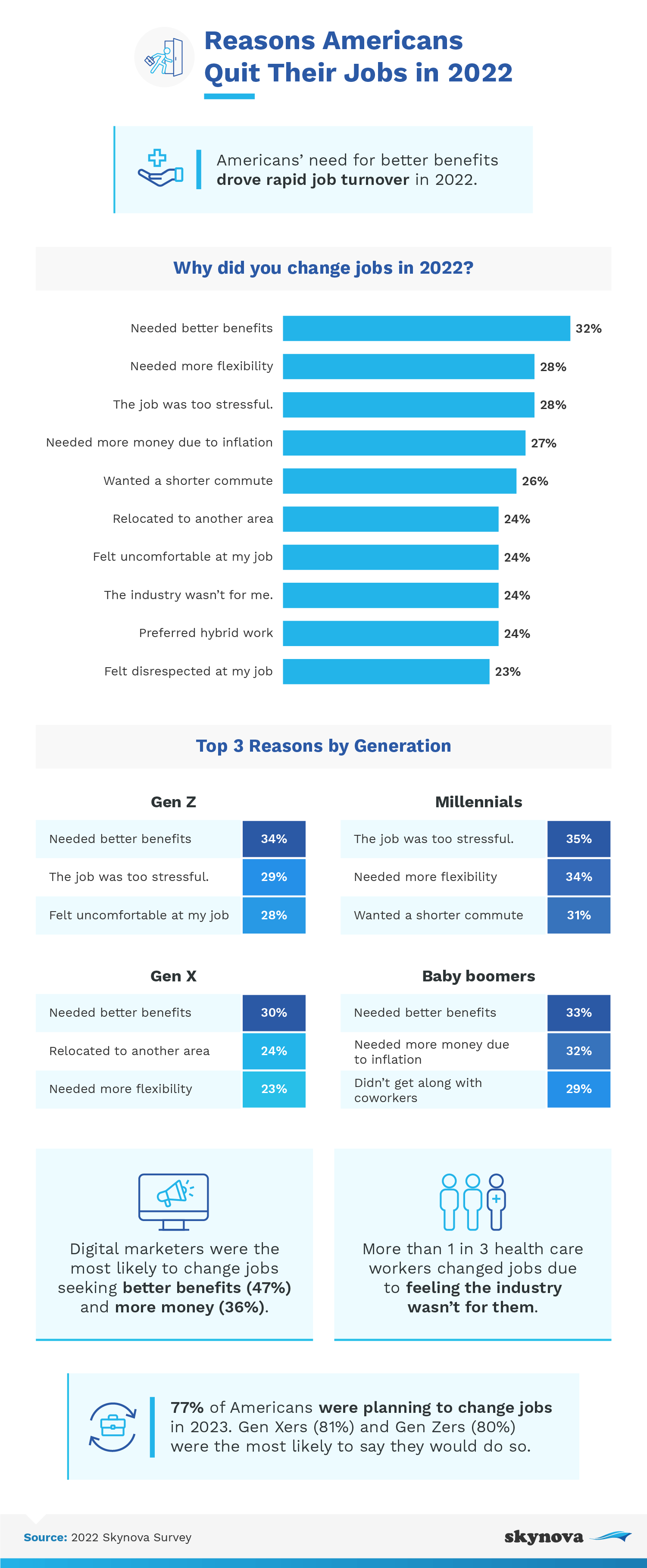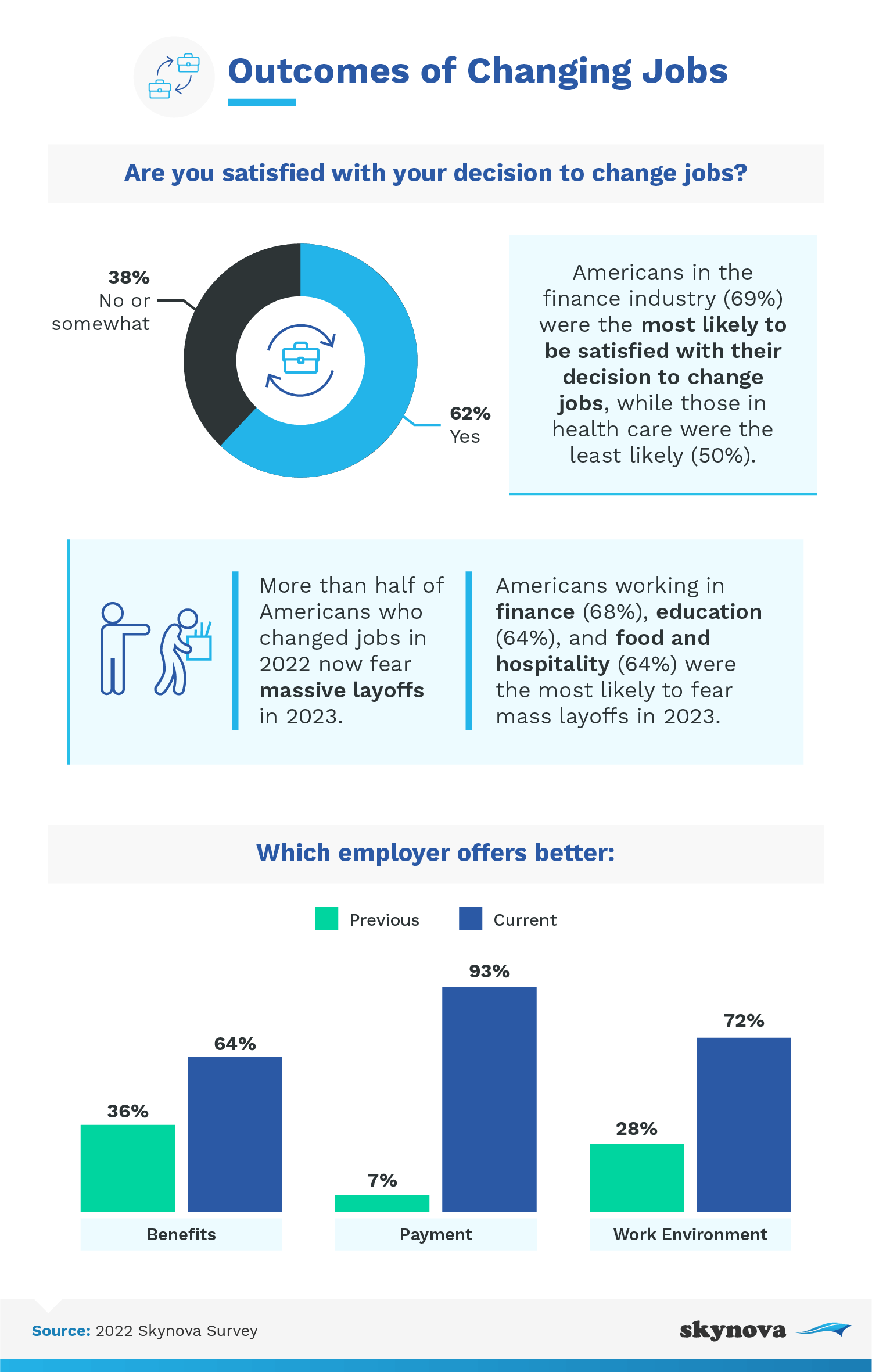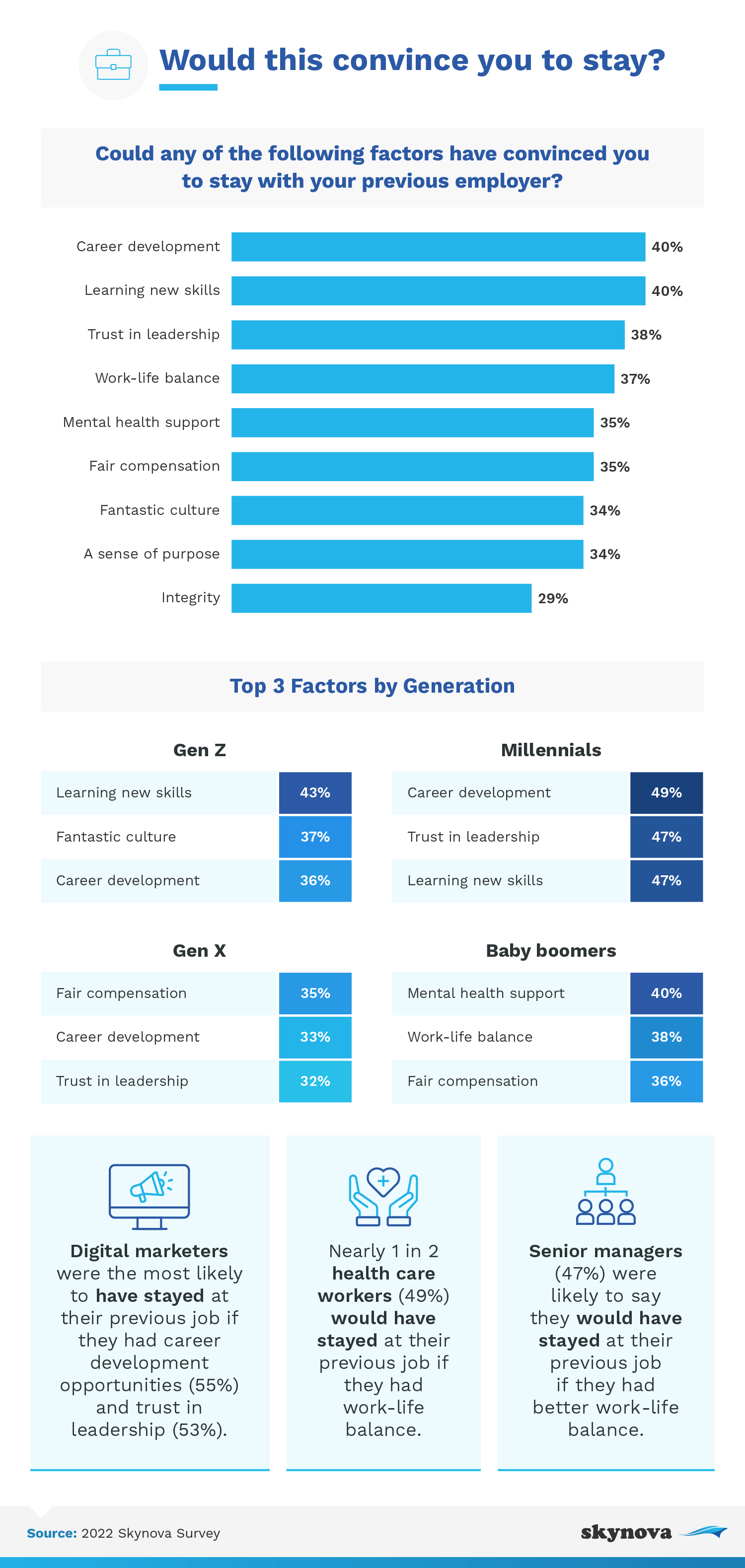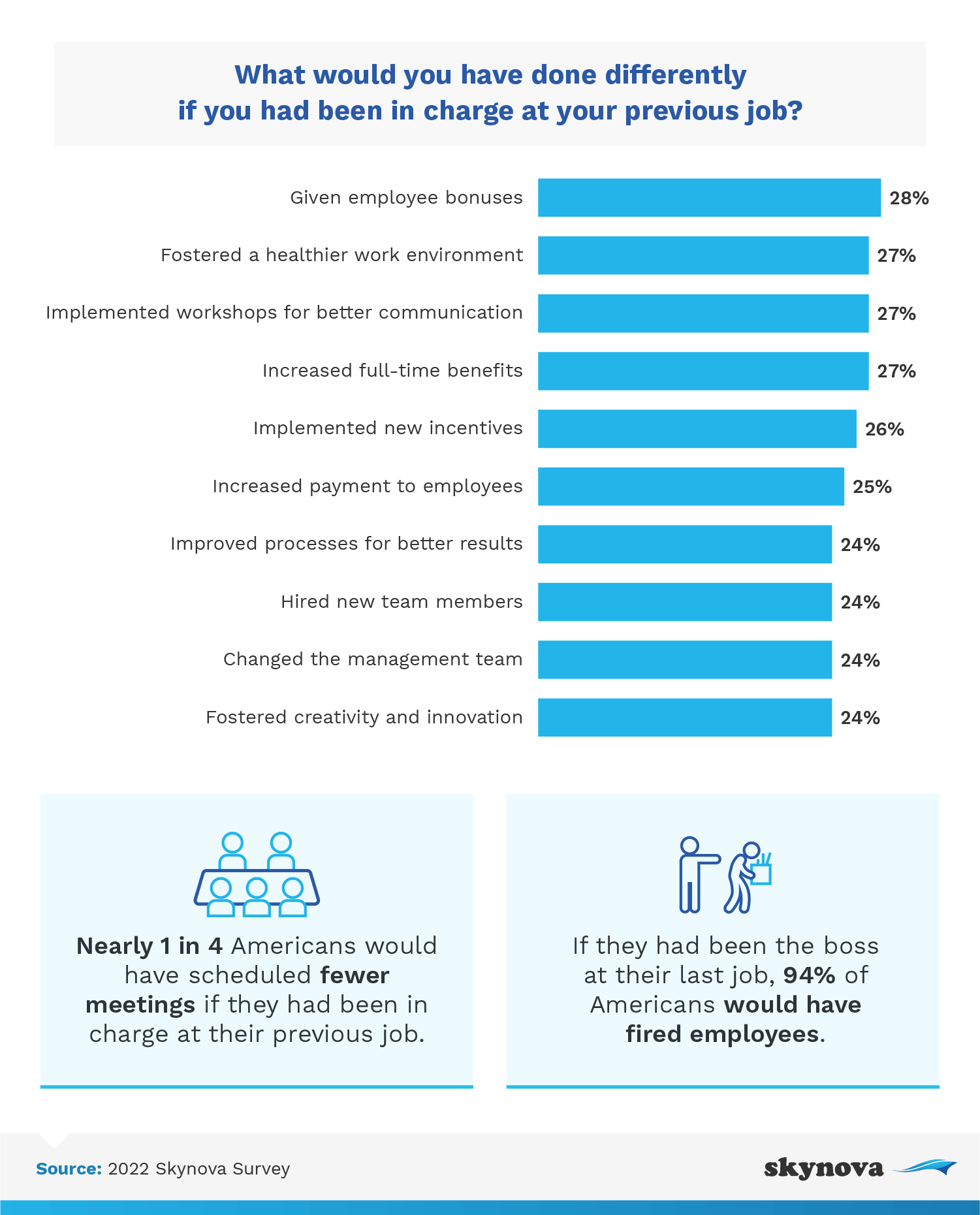
|
Companies have been losing employees to the Great Resignation for the past couple of years. From entry-level hires to senior-level veterans, employees have changed jobs and jumped industries at record rates. Wages are one motivating factor in employees' decisions to leave, but the high departure rates indicate more is at play.
To find the motivating factors behind this mass exodus, we surveyed 1,002 Americans who changed jobs in 2022. Why did people leave their jobs? And what, if anything, might have convinced them to stay?
Quitting one's job is a huge risk. Despite this, employees have been quitting in record numbers. What's driving so many to leave and change jobs?

The single greatest reason employees changed jobs in 2022 was for better benefits; of those surveyed, 32% quit their job for this reason. It was also the leading reason for quitting among every generation except millennials.
Creating competitive benefits packages can be a struggle for companies, especially small businesses. To stay competitive, companies can include unconventional benefits in employee packages and workplace culture. Many of these benefits come at little or no cost to the company, like allowing flexible hours, having a lounge or nap room, giving out free ice cream, offering PTO for volunteer hours, or shortening the summer work week.
Second to better benefits, 28% of respondents quit to gain increased flexibility, and another 28% quit because their job was too stressful. Job stress was the leading reason senior managers (36%) and millennials (35%) quit. With stress leading to so much turnover, companies would do well to prioritize mental health in the workplace and foster a company culture that supports employee wellness.
Low pay was the fourth motivating factor for quitting. Only 27% of respondents quit for better pay, but it was the top reason senior employees (29%) changed jobs. As senior employees take on more responsibility and show commitment to the company, they expect to be valued and compensated accordingly. Companies that reward loyalty are more likely to see their workforce stick around.
Whatever their reasons for leaving, most people change jobs hoping to find something better. How do employees feel about their new positions after settling in? Are most people happy they quit, or do they regret their choices?

The majority of those who changed jobs in 2022 (62%) said they're glad they did. Senior managers (72%) and senior employees (68%) were the most satisfied with their decision to quit and change jobs.
Unfortunately, the continued fear of a U.S. recession has many job hoppers on edge. More than half of those who changed jobs in 2022 fear layoffs in 2023. And job satisfaction has little to do with the fear: Finance industry employees were the most likely to be satisfied with changing jobs (69%) but were also the most likely to fear layoffs (68%). Only time will tell if these fears are justified.
Companies want to keep their best talent regardless of what happens to the economy. Whether a company saw a mass exodus or an influx during the Great Resignation, they need to figure out how to keep their employees happy and committed. Is there anything employers could have done to prevent employees from quitting in 2022?

Of those surveyed, 40% said career development or learning a new skill could have convinced them to stay with their previous employer. Career development and learning were especially important to millennials and Gen Zers, as well as those in the digital marketing field. Building trust in leadership (38%) and helping employees achieve work-life balance (37%) were also ways employers could have retained talent.
Employees leave their jobs for better benefits, more flexibility, less stress, and increased pay, but employer appreciation, support, encouragement, and development can sometimes override these issues and motivate employees to stay.

Unsurprisingly, when asked what changes they would have made at their previous job if they had been the boss, employees cited all the reasons they quit and all the things employers could have done to keep them. Had they been in charge, employees would have given bonuses, created a healthier work environment, increased benefits and incentives, given raises, and fostered creativity and innovation.
A healthier work environment might include the flexibility to work remotely, either full-time or hybrid. But with remote work comes the need for excellent employer-employee communication. As such, if our respondents had been in charge at their previous place of work, 27% of them would have held workshops to improve workplace communication.
Successful communication strategies within a company might include one-on-one meetings between employees and supervisors or employee surveys to answer questions and resolve issues. But remote workers might need additional ways to stay in touch. While it seems like a lot to keep up with, many workplace communication apps help teams feel connected no matter where they're working.
The COVID-19 pandemic triggered a major shift in priorities, leading employees to quit in record numbers during the Great Resignation. In this new post-pandemic era, employees are placing less importance on paychecks, instead opting for positions offering unconventional benefits, flexible work hours and structures, and better work-life balance. Employees expect their employers to invest in them as individuals, taking time to teach skills, develop careers, support advancement, and promote general employee wellness.
As companies embrace this new people-centric workplace culture, their employees will be more productive, less stressed, and more satisfied. And hopefully, the next time that itch to job hop creeps up, they'll feel valued, appreciated, and supported enough to stay right where they are.
Skynova provides online software for small businesses, such as invoices, accounting, timesheets, and more, to help small businesses run smoothly and continuously progress. We also write articles for business development and insights using company-conducted surveys, statistics, and research.
For this campaign, we surveyed 1,002 employed Americans who had changed jobs in 2022. Among them, 64% were men, and 36% were women. The generational breakdown is as follows: 25% Gen Z, 35% millennials, 25% Gen X, and 15% baby boomers.
If you or someone you know are considering changing jobs or concerned about employee retention, we encourage you to share the results of this study for any noncommercial use. We simply ask that you include a link to this page in your story so they can access our full findings and methodology.